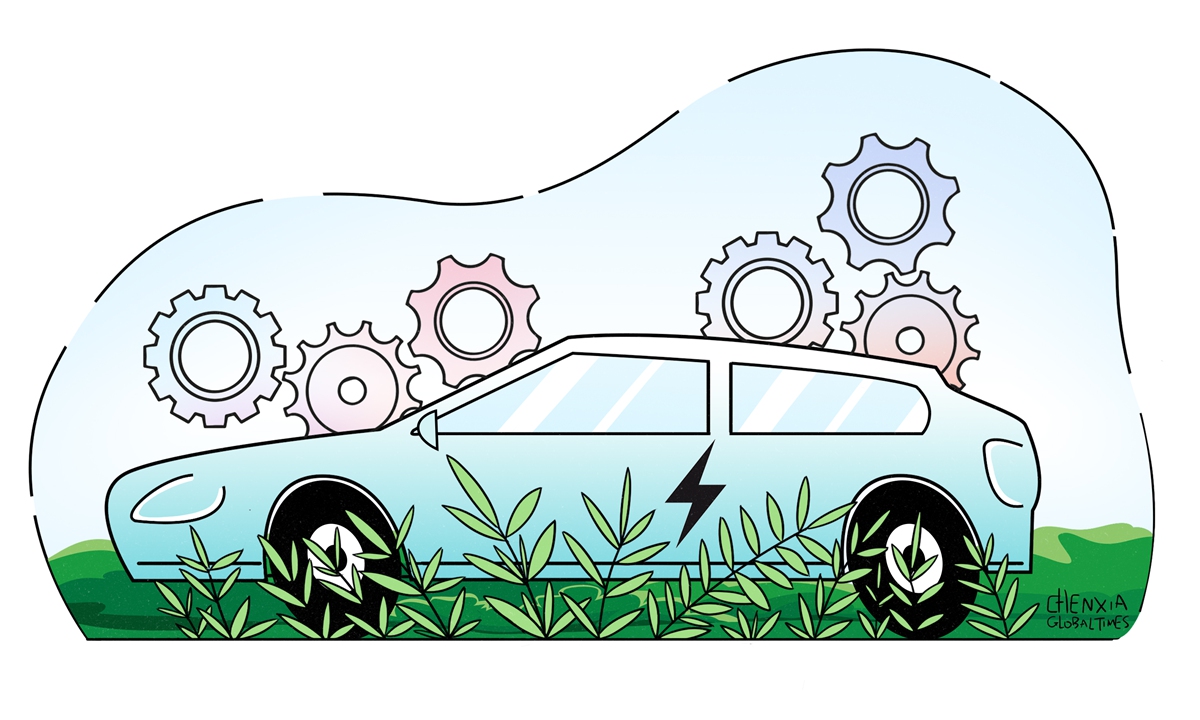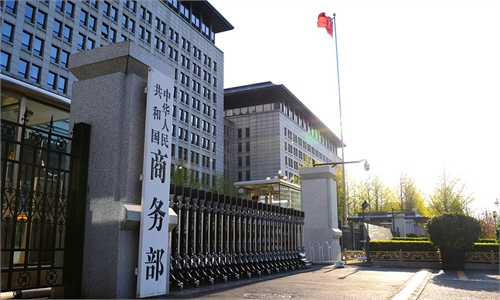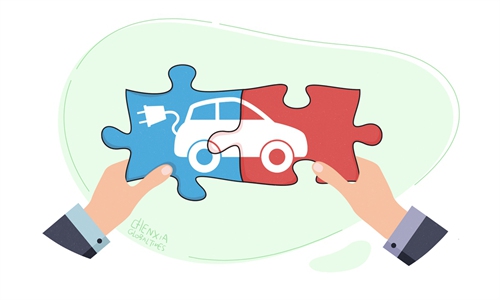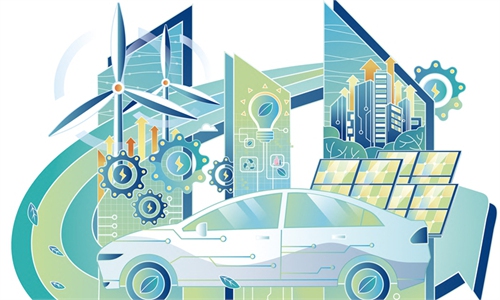
Illustration: Chen Xia/GT
Amid escalating tensions in which US officials view Chinese electric vehicles (EVs) as a threat to the local auto industry, a political virus that loses no chance to intensify zero-sum confrontation is spreading in some European countries, even though such a narrow-minded mentality will hinder the development of renewables.
Italian Industry Minister Adolfo Urso was quoted by Reuters as saying on Saturday that the EU should follow the example of the US and protect its industry by imposing tariffs on Chinese products. His remarks represent nothing but a zero-sum mentality and timidity in the face of normal business competition from Chinese companies.
Italy's anxiety about protecting its own industry lies in the long-term decline in its industrial competitiveness, not in its competitors. Stellantis-owned Alfa Romeo, a brand steeped in Italian automotive history, is a typical example. Urso criticized Stellantis in April for producing Alfa Romeo's first fully EV abroad, according to Reuters.
The new model is reportedly the first Alfa Romeo car to be built entirely outside Italy, coming from its plant in Poland. This helps offer a window to observe Italy's auto industrial chains. It seems Italian politicians are afraid of competition not only from China, but also from other EU countries, so they want to use trade protectionism as an umbrella for the local auto supply chain, which is slowly transitioning toward electrification.
It is unfair to protect backward production capacity. Clearly, trade protectionism goes against the interests of many EU member countries, especially those that are ramping up efforts to develop the EV industry and attract investment, such as Poland. The EU, as a whole, should oppose and resist trade protectionism, which is in line with the interests of the majority of EU member states.
Urso was quoted as saying "much higher tariffs against Chinese products are inevitable if we do not want the European industry to be wiped out." Such panic is an overreaction. The EU, which is home to many leading carmakers, is among the world's biggest producers of motor vehicles. Without trade protectionism, which disrupts both internal and external supply chains, the EU's auto industry will have a better chance to develop.
Amid the ill-intentioned crackdown by the US on Chinese-made EVs, Washington may try to drive a wedge to disrupt cooperation and cross-border supply chains between China and the EU. Also, US elites are trying to persuade the EU to buy into the idea that its auto industry cannot survive in global competition. It's ridiculous.
In this process, some Western politicians have tried to exaggerate the competition between China and the EU in the auto sector, deliberately overlooking the fact that there are many areas of complementarity and cooperation between the two sides. For instance, Europe's car giants were among the first global automakers to enter the Chinese market. The past decades have seen a closely intertwined auto supply chain formed between China and EU countries.
Companies from all over the world are welcome to further expand investment in China. Today, European firms remain important participants in China's auto market. From an economic perspective, strengthening cooperation with China, rather than seeking decoupling and bowing to trade protectionism, will help the EU maximize its interests amid the global industry chain restructuring and the shift toward new-energy vehicles.
China's automakers' fast growth in EVs follows innovation amid tough competition. Compared with China, some EU countries are moving at a relatively slow pace toward auto electrification. However, the world's green transition, as well as the EV industry, is still in its initial stage of development. So it's too early to draw a conclusion on who will win the future competition.
The European auto industry has been a force in the continent's economy for decades. European countries have developed their auto sectors on the basis of a huge, mature industry as well as a comprehensive supply chain. From a long-term perspective, the cooperative side of supply chains far outweighs the competition side.
In the early stages of global EV competition, the most important thing is to establish a set of basic rules for everyone to follow. It is a fundamental principle that we must ensure fair competition in the market. This will have a far-reaching impact on the future competition.
There is still a long way to go in terms of EV competition. The EU does not need to lose confidence and bow to trade protectionism at the very beginning. Trade protectionism will disrupt economic order and damage the long-term competitiveness of the EU's auto industries.
The author is a reporter with the Global Times. bizopinion@globaltimes.com.cn



